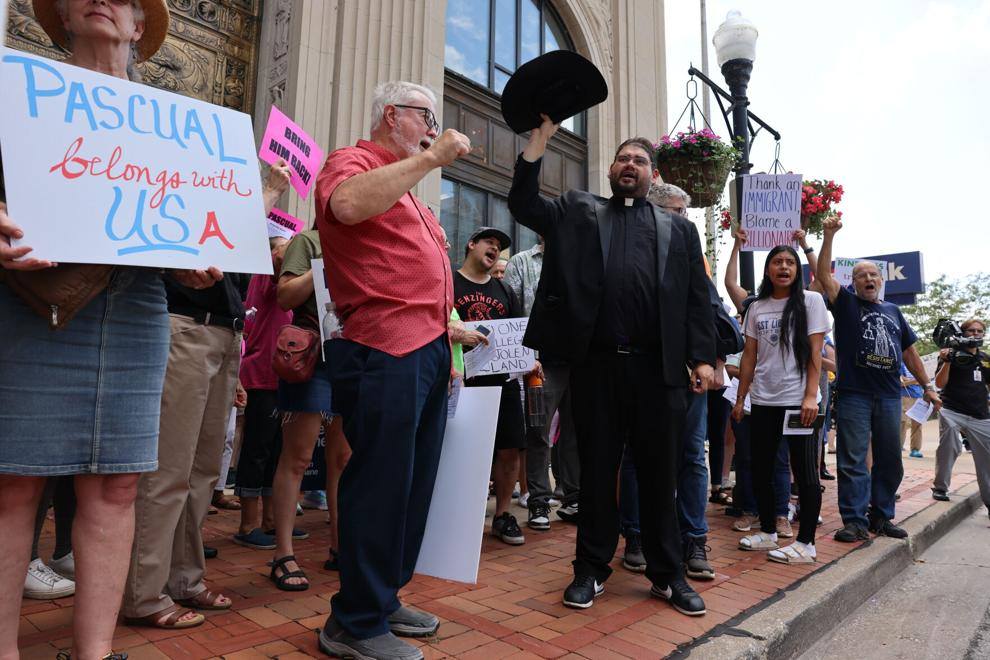Randy Evans is executive director of the Iowa Freedom of Information Council, a nonpartisan, nonprofit organization that promotes openness and transparency in Iowa’s state and local governments. He can be reached at DMRevans2810@gmail.com.
One longtime truism of journalism is “Names make news.”
That shorthand stems from the fact people better understand the significance and context of news when they learn about events and issues through the eyes and experiences of people they know or with whom they can identify.
The late Iowa Supreme Court Justice Mark McCormick described the importance of this news tenet by noting how disclosing even sensitive private facts and names offers “a personalized frame of reference to which the reader could relate, fostering perception and understanding” and lends “specificity and credibility.”
Here are two heartbreaking examples from recent events:
First, news reports in the last week focused on the more than 125 people who died and some 150 others who remain missing after flash floods swept through the hill country of central Texas. But the magnitude of the loss hits harder when you attach names to the grim statistics.
Names like 8-year-old twins Hanna and Rebecca Lawrence, who died at Camp Mystic, a summertime haven for girls; camp counselor Claire Childress, 18, who lost her life trying to protect young campers; Richard Eastland, 70, the camp director, who gave his life while trying to save the young girls who filled the camp’s picturesque cabins; and sisters Blair and Brooke Harber, ages 13 and 11, whose bodies were found 15 miles downriver, still holding hands, after being swept from their grandparents’ vacation cabin. The grandparents, Mike and Charlene Harber, 76 and 74, died, too.
Second, and closer to home, Pascual Pedro Pedro of West Liberty gave Iowans a heart-wrenching lesson about the impact of the federal government’s push to deport undocumented immigrants.
Now 20 years old, Pascual was 13 when his father brought him to the United States from Guatemala. His father was deported later, but over the past decade the federal government permitted young Pascual to remain in West Liberty with his grandparents, who have resided there for more than 30 years.
During last year’s presidential campaign, Donald Trump repeatedly vowed to seal the southern border to keep immigrants from entering the U.S. without permission. He also vowed to swiftly deport those he portrayed as hardened criminals — the rapists, murderers, drug dealers, terrorists, crooks and thugs — who, he said, are destroying our country and taking jobs from U.S. citizens.
Iowa officials from our governor to our Congressional delegation embraced the Trump promise.
Yet, Pascual Pedro Pedro was not one of Trump’s “animals.” According to his friends, school staff, church leaders and neighbors, he was a well-mannered, well-liked, respectful, hard-working and religious member of the community.
Pascual graduated from West Liberty High School in 2024. There, he excelled in the classroom and on the athletic field. He played on the school’s soccer team that advanced to the state tournament. After graduating, Pascual began working for his grandfather’s siding company.
There is another important detail you need to know: Pascual had a spotless criminal record and never received even a traffic ticket.
Even so, U.S Immigration and Customs Enforcement agents took him into custody on July 1, when he voluntarily showed up in Cedar Rapids for a routine annual check-in with ICE.
But this time, ICE took him to the jail in Muscatine. Within a few days they moved him to a federal detention center in Louisiana. Then, over the July 4 holiday weekend—before the family’s attorney could ask for a court hearing—the Trump administration flew Pascual to Guatemala.
Since then, hundreds of people in eastern Iowa have held rallies and vigils to try to pressure the government and members of Iowa’s Congressional delegation to return Pascual and to support reasonable and compassionate treatment of law-abiding immigrants who enrich their communities, contribute to Iowa’s economy, and lack a criminal record.
The young man’s supporters include Father Guillermo Treviño, his parish priest in West Liberty, and Bishop Dennis Walsh, who heads the Catholic diocese of Davenport.
Their calls for humane and just outcomes sound reasonable, simply because they are.
At his July 3 rally in Des Moines, Trump promised to protect undocumented, law-abiding immigrants working on farms and meat processing plants from deportation. Republican leaders in Iowa, including Governor Kim Reynolds and U.S. Senator Chuck Grassley, have expressed support for that goal. They echoed the president’s statement that he never wants to “hurt our farmers. Our farmers are great people. They keep us happy and healthy and fat.”
The president put a good spin on that when he told reporters, “We can’t put the farms out of business. And at the same time, we don’t want to hurt people that aren’t criminals.”
Tell that to Pascual Pedro Pedro, if you can find him.
His story is not nameless, faceless, or victimless.
Top photo was first published on the Facebook page of Escucha Mi Voz Iowa and is republished with permission.


2 Comments
Reynolds, Grassley and the rest
all supported (many by directly voting for) Trump’s ethnic cleansing secret police force, military policing of free-speech on American soil, and concentration camps (won’t be surprised if they start building one here). The other day on the On Iowa Politics pod Althea Cole kept saying that is was “inevitable” that PPP was snatched away from his family and community as if no-one was making choices here that they should be held accountable for. With our increasingly corrupt and fascist DOJ, Supreme Court, and other agencies/branches we need to be extra vigilant when people say they are doing immoral things because they are just following the law as if that was some settled matter/standards.
dirkiniowacity Sat 19 Jul 9:46 AM
Amie fleshes out some
of the broader implications
https://iowastartingline.com/2025/07/18/pascual-pedro-pedro-not-the-only-one-immigration-arrests-deportations-triple-in-iowa/
dirkiniowacity Sun 20 Jul 3:56 PM